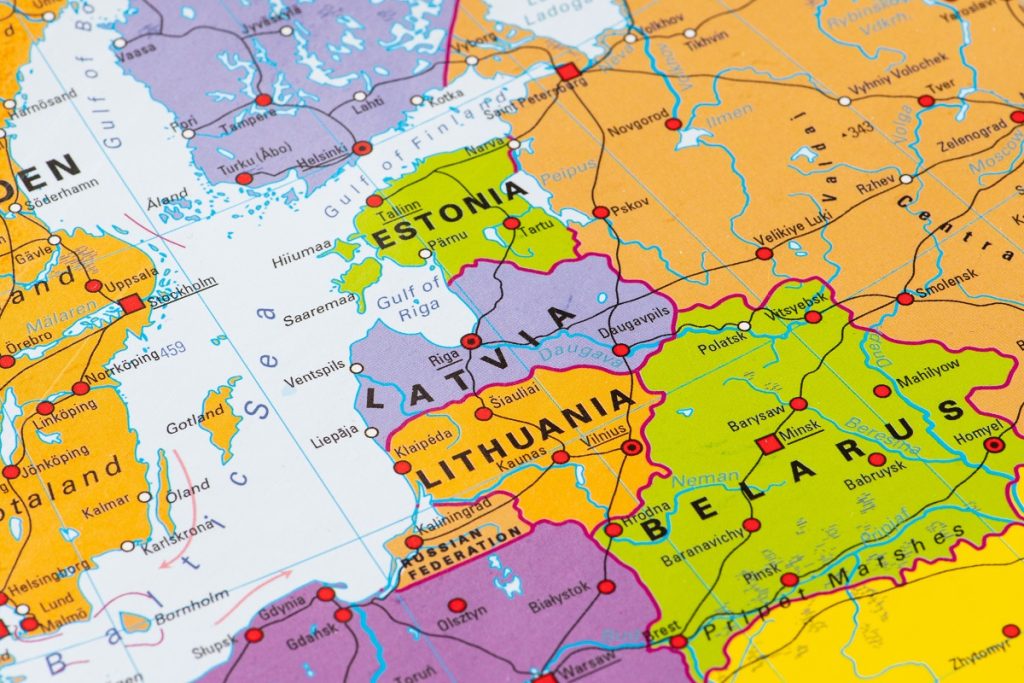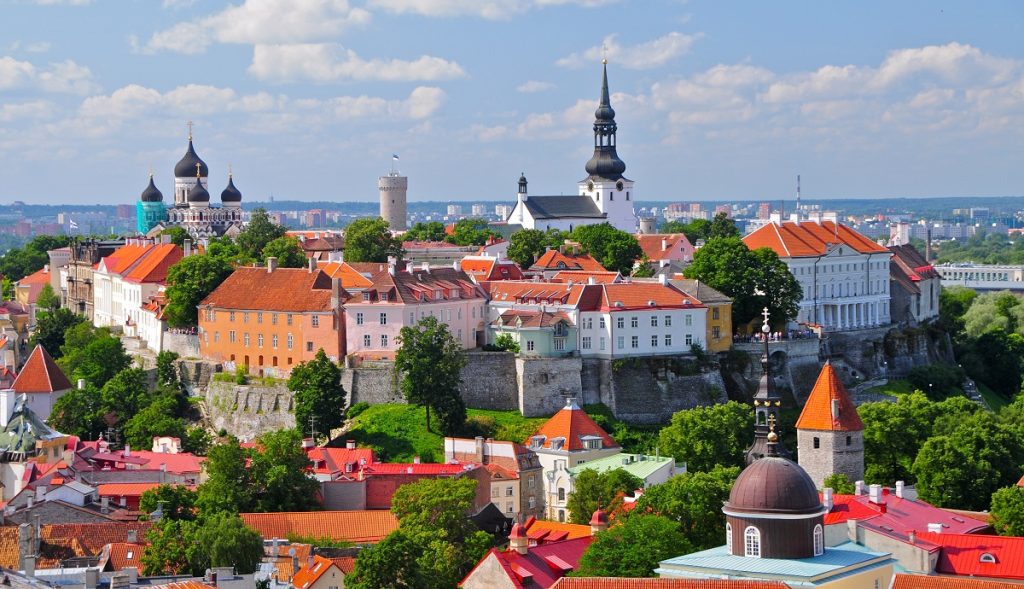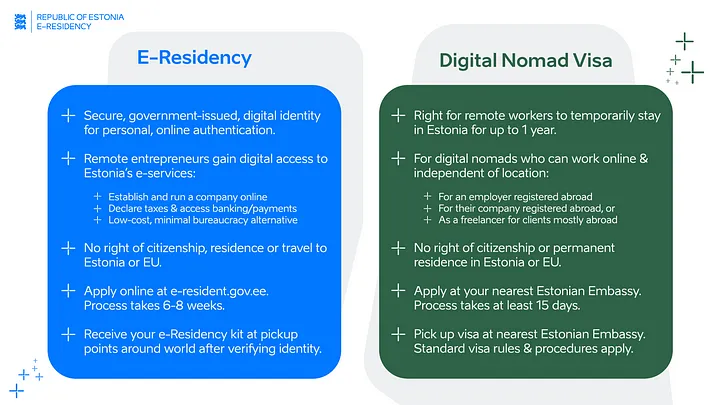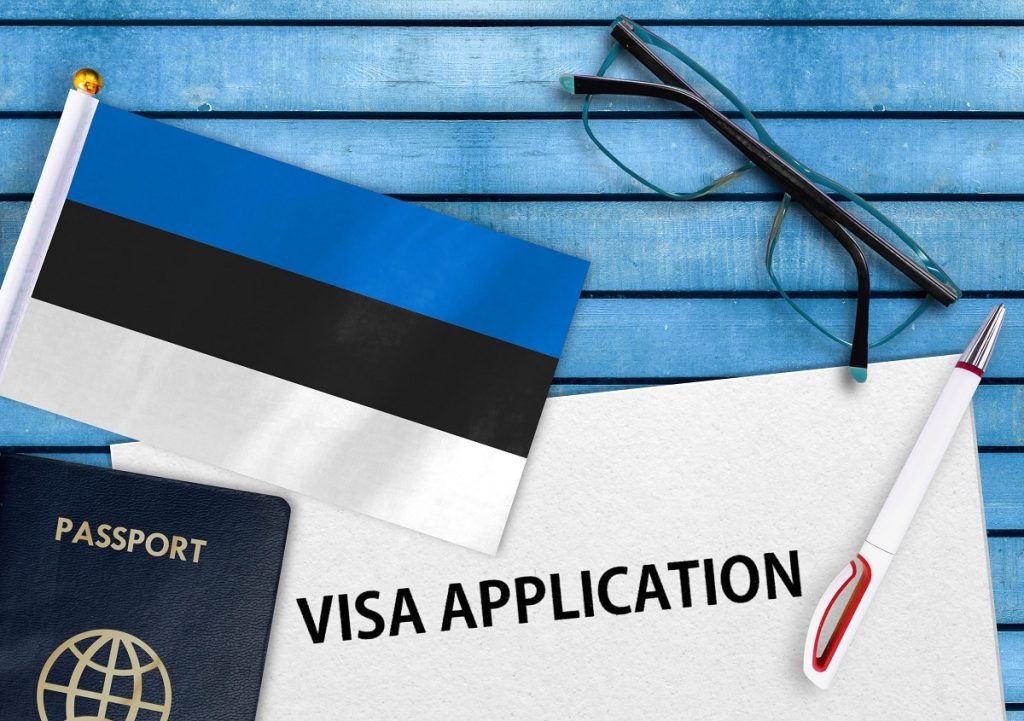Many foreigners who want to work remotely or start businesses flock to Estonia, one of the most underrated countries in Europe. The country offers an Estonian digital nomad visa and an e-residency program facilitating remote work.
Are you a digital nomad searching for a new, exciting place to live and work? Thanks to the recently launched Estonia digital nomad visa program, Estonia may be just the place for you. This program allows digital nomads to live and work in Estonia for up to 12 months, allowing them to experience the country’s culture, cuisine, and stunning natural beauty.
The Estonia digital nomad visa program is straightforward, and the application process is relatively easy, making it an attractive option for those interested in living in the country for an extended period.
This article explores everything you need about the Estonia digital nomad visa, including eligibility requirements, application procedures, and the benefits of living and working in Estonia as a digital nomad.
Table of Contents
Why Is Estonia Popular With Remote Workers
Estonia is popular with remote workers due to its advanced digital infrastructure and tech-friendly environment. The country is a pioneer in e-governance and offers digital services such as e-residency, which allows remote entrepreneurs to establish and manage a business in Estonia entirely online.
Estonia’s relatively low cost of living, excellent work-life balance, and stunning natural scenery make it an attractive destination for remote workers. The country’s advanced Wi-Fi infrastructure and supportive business environment make it an ideal destination for digital nomads.
A Baltic country south of Finland. Estonia was previously an independent state of Russia that gained complete freedom in 1991. Poverty encouraged the government to provide e-services which required fewer personnel. They recently started E-residency programs to increase revenues by extending their tax base worldwide.

Does Estonia Have A Digital Nomad Visa?
Estonia’s digital nomad visa program gives remote workers the chance to live and work in the country for up to a year. The visa can not be extended, but workers can apply for a new visa for six months.
Those who work for a foreign employer or are self-employed and work entirely remotely can benefit from having an Estonia digital nomad visa. The application process is relatively straightforward and can be completed entirely online.
For those seeking permanent residency in Estonia, the digital nomad visa is not a step toward becoming a permanent resident. However, a digital nomad can apply for Estonian residency within 120 days of arrival.


What Is E-Residency In Estonia?
Estonia’s E-Residency scheme is a government-issued digital identity program that allows individuals to access Estonian digital services remotely. E-Residency provides digital ID cards that you use to sign documents electronically, access online banking services, and establish and manage a business in Estonia entirely online.
E-Residency is open to anyone interested in conducting business in Estonia, regardless of location. It provides entrepreneurs with hassle-free, cost-effective, and secure ways to establish and manage a company in the EU market.
Foreigners who do business in Europe (desire to) gain presence in the marketplace through e-residency. Registration in Estonia is quick and easy. Tax rates are low, plus Estonia has no tax on undistributed profits.
Being an e-resident offers many benefits, such as access to the EU market, a highly advanced digital infrastructure, and a business-friendly environment. These programs are entirely optional and aim to attract and facilitate remote workers and entrepreneurs interested in Estonia as a destination for living, working, and doing business.
Which Is Better To Have – A Digital Nomad Visa Or E-Residency?
While e-residency and the digital nomad visa programs in Estonia share some similarities, they serve different purposes.
E-Residency
E-Residency allows individuals to establish and manage a company in Estonia entirely online, giving them access to the EU market, advanced digital infrastructure, and a business-friendly environment.
However, e-Residency does not provide individuals with the right to live or work in Estonia, nor does it allow them to open a personal bank account or access healthcare services in the country.
Digital Nomad Visa
On the other hand, the digital nomad visa program allows remote workers to live and work in Estonia for up to a year, providing access to the country’s lifestyle, culture, and natural beauty.
While the digital nomad visa does not allow individuals to establish a company in Estonia, it does offer them an opportunity to experience living and working in the country for an extended period.
While e-Residency and the digital nomad visa programs in Estonia are complementary, they serve different purposes. Digital nomads who want to establish companies based there can apply for e-residency, which is open to non-EU citizens, allowing them to access Estonia’s e-services and conduct business remotely.
Nomads in Estonia to work can do so for an Estonian company so long as their remote work is their primary source of income.

Residency Visa
For those who want to stay in Estonia longer, the residency visa is good for five years. You can work in the country and earn eligibility for permanent residency. You also get an Estonian ID Card, which grants access to the services the government provides.
Why Bother With A Visa If The E-Residency Works?
An e-residency in Estonia has no specific income or length of stay requirements. In fact, e-residency does not give individuals the right to live or work in Estonia. Any individual from any country can apply for e-Residency, regardless of income or length of stay.
If you want to come to Estonia on business, as a tourist, or as a remote worker, you would still need to obtain the correct tourist, resident, or digital nomad visa.
To get the card, you must complete an online application form, pay a processing fee of 100 euros, and provide a valid government-issued ID and a passport-style photo. Once approved, you will receive an e-Residency digital ID card that will allow them to access Estonian digital services remotely.
Digital Nomad Visa
Digital Nomad Visa applicants must meet several requirements, including:
- Applicants must be employed or be contracted with a company registered outside of Estonia or be self-employed and provide services to clients outside of Estonia.
- Your monthly income must be at least €3504 ($3,843) per month for the six months preceding the application.
- Applicants must have health insurance that is valid in Estonia and covers the duration of their stay.
- The Digital Nomad Visa is valid for a maximum of one year, and applicants can stay in Estonia for a maximum of 365 days in a 455-day period.
- Applicants must pay an application fee of €80 when applying for the Digital Nomad Visa.
It’s important to note that the digital nomad visa program is designed for individuals who want to live and work in Estonia for an extended period but do not intend to establish a company there.
Where Do You Apply For A Digital Nomad Visa In Estonia?
To apply, follow these steps:
- Visit the Estonian Police and Border Guard Board’s website and complete the online application form.
- Upload all the necessary documents, including a copy of your passport, proof of health insurance, and a letter of intent explaining why you want to live in Estonia.
- Pay the application fee, which is currently €80.
- Once you have submitted your application, you will receive a response within 30 days.
- If your application is approved, you must visit the Estonian embassy in your home country to obtain your visa.
- After arriving in Estonia, you must register your place of residence with the local authorities within three months.
- Finally, you must also apply for a tax number and obtain health insurance in Estonia.
Please note that the digital nomad visa is only available to citizens of countries with a visa waiver agreement with Estonia. If you are not eligible for the digital nomad visa, you may still be able to enter Estonia as a tourist and stay for up to 90 days without a permit.

How Long Can You Stay In Estonia As a Remote Worker?
With a digital nomad visa, holders can stay in Estonia for up to 12 months and also travel within the Schengen area for short-stay purposes. However, you should be aware that the visa is issued for a maximum stay of 90 days within a 180-day period. You must exit Estonia for at least one day every 90 days to comply with the visa requirements.
If you want to stay longer than 12 months, you will need to leave Estonia and reapply for the visa again. It’s also possible to apply for a long-term residence permit if you wish to stay in Estonia for an extended period. Still, this process has different requirements and may take longer to obtain.
Despite the ongoing pandemic, the Estonian government has continued to issue digital nomad visas to applicants from visa-free European countries. Family members can also join visa holders in Estonia for the long-stay visa period.
Type C Tourist Visa And Type D Visa
If you’re looking to visit Estonia for tourism purposes, you can apply for a type C tourist visa, which allows you to stay in Estonia for up to 90 consecutive days.
The application process for a type C visa is straightforward and requires applicants to submit the necessary supporting documents, including an employment contract and proof of income.
The digital nomad visa is a type D visa that allows holders to stay in Estonia for up to 12 months. While it is valid for a maximum of 90 days within a 180-day period, remote workers can exit Estonia for a day and then return to extend their stay.
The visa also allows holders to travel to other Schengen countries for short-stay purposes.
Submit Your Application Online
Applicants can submit their digital nomad visa application online and then visit the nearest Estonian embassy or border guard office to obtain the visa. With Estonia’s advanced telecommunications technology and e-services, remote workers can stay connected to their work and enjoy coworking spaces in its beautiful cities, such as the capital Tallinn.
For more information on the Estonian digital nomad bisa, check out the frequently asked questions on the official government website. With its friendly business environment, supportive startup community, and gross-of-tax benefits, Estonia is an excellent destination for digital nomads seeking a work-life balance in a beautiful location.


